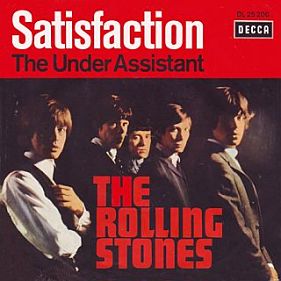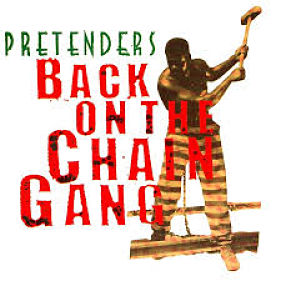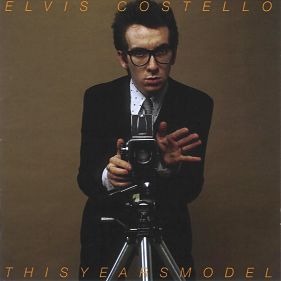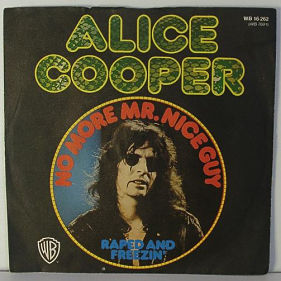Rock and Roll’s Great Basslines – Part One
Bass brothers, sisters, transgender four stringers, readers, and combinations thereof: do not despair.
There is no need to scroll downward at first glance to review which bass passages I have listed. In fact, no such entity as the “greatest” of anything exists!
What makes a great bassline? Melody? Dexterity? Rhythm? Tone? Purpose? Functionality? Articulation? Phrasing?
In the art-form known as rock ‘n’ roll – all these elements tend to vanish in the haze, to quote a famous rock poet.
To my ears, the great bass passages are the elusive ones.
Not so much the thundering solos, rapid-fire note filled runs, flashy displays of quickness, nor overtly noticeable motifs which dominate a composition or recording – though I dig them by way of Les Claypool, Jack Bruce, John Entwistle, Geddy Lee, Cliff Burton, Flea, Chris Squire, and the many, many masters of the instrument too numerous to cite right now.
I am endlessly impressed with those “simple” lines that, quite frankly, a beginner could reasonably get their fingers around.
Those austere basslines that create magic within a song.
Those ingenious basslines that grab the listener whether they realize it or not.
Those effortless lines that other bass players, producers, arrangers, and engineers nod their heads in reverence of.
Those essential basslines that are deceptive in their brilliance.
My selections Part One herein are based on my musical taste, generational bent, and double shots of Expresso.
Bill Wyman / Rolling Stones: (I Can’t Get No) Satisfaction. Keith Richards wrote a pretty good riff … then he went back to sleep. However, when the former William Perks added his bassline on record, he transformed it into an iconic, monumental riff. Most blues bass players tend to reinforce the guitar player by doubling the motif. Not Bill, who learned his craft by studying the immortal Willie Dixon. On the Rolling Stones definitive tune, Wyman dances around Keith’s guitar part while employing harmony notes that give the song its signature tension. His hands hardly move on the fretboard. The great ones always make it look so damn easy.


Paul McCartney / The Beatles: Lucy In the Sky with Diamonds: Sir Paul leaps in the verses with his usual deft command of rhythm, space, and melody. However to my ears, Macca’s signature brilliance emerges in the chorus wherein he renders an unassuming chromatic passage – phrased akin to a tuba – which splendidly weaves the chords together beneath John’s grand melody. What Paul does on this song is essential to the Beatles DNA, which is why their canon will endure for centuries.


Tony Butler / The Pretenders: Back on the Chain Gang: Root, third, fifth notes: rinse and repeat! They are the building blocks of every chord, and it’s the most rudimentary exercise that every bassist must master before they progress on their instrument. Most bassists would have either hung on the root or noodled all over the fretboard. Heck, Chrissie Hynde’s lyrics and melody do all the heavy lifting. Tony’s valiant use of a simple bass workout makes this song a classic. How many bass players, myself included, hear this tune, smack their forehead and blurt out “why didn’t I think of that!”


Bruce Thomas / Elvis Costello and The Attractions: Lip Service: This one takes chops to render as fluidly as Mr. Thomas, who was the bassist behind Declan’s Rock and Roll Hall of Fame career. A busy bass track to say the least, Thomas fuses a hodgepodge of old-school rhythm and blues motifs throughout the verses, then solidifies the chorus with an upper-register melody that nails it. He then proceeds to render quarter notes leading into the ensuing verses. Sometimes you throw everything against the wall and all of it sticks! It worked every time for Bruce Thomas…


Dennis Dunaway / Alice Cooper Band: No More Mr. Nice Guy: I’ve interviewed Dennis, and when you meet the man you know exactly why his basslines are magnificent: he’s cool, confident, and musically mischievous. He knows the rules and how to break them! On this seminal Cooper cut, Dennis takes his sweet time laying down key notes whilst the former Vincent Furnier howls and the guitars blaze. Dunaway’s upper register motifs beneath the signature guitar lick steals the show. Every rock bass player I know loves the way Dennis Dunaway plays bass.


Andy Fraser / Free: All Right Now: As told to this writer by Free drummer Simon Kirke: “when Andy didn’t play on most of this song we asked him if he was feeling okay!” Fraser, who composed this rock anthem with Paul Rodgers, lays out on the verses, plays a heavy quarter note feel on the chorus, then blows you away with a slick soulful solo repetitive bass motif that leaps registers – nearly impossible to play evenly lest you have a short scale bass or above average chops. Every note Andy Fraser ever recorded mattered – how many players can make that claim?


Norman Watt-Roy / The Clash: The Magnificent Seven: On loan from Ian Dury’s Blockheads, Norman’s punchy repetitive motif and cascading turnaround fuses rap, disco, and punk. Watt-Roy tempered his virtuosity to fit the Clash’s modus operandi, and if you crank this one loud enough, Norman’s resonant Fender Precision will split you in two! Sure, you can argue that “London Calling,” “White Riot,” “Train in Vain,” and “Should I Stay or Should I Go” brought the band and punk rock to the masses, but to my ears, “The Magnificent Seven” was the Clash’s finest moment.


Gary Tallent / Bruce Springsteen and the E Street Band: The Ties That Bind: I don’t listen to Bruce Springsteen albums unless Gary Tallent helms the bass chair. Gary’s deep knowledge and command of rhythm and blues is what drives the E Street Band. On the opening track of The River (1980), Gary gallops through this cut with soulful lines that percolate with rhythm and space aplenty for Messrs. Bittan, Clemons, Federici, Van Zandt, the Mighty Max, and their bandleader to strut their stuff. What a difference this bass player makes…


John Deacon / Queen: You’re My Best Friend: To my ears, every bass passage John Deacon waxed exuded harmonic, tonal, and rhythmic excellence. To cite just one instance, look no further than John’s composition “You’re My Best Friend” (1975). Queen’s quiet one swings with authority, seamlessly moving from the pocket to counter-melodic foil to juxtapose Freddy’s cooing croon. Sure, Mercury, Brian May, and Roger Taylor garnered hosannas aplenty, and deservedly so. However Queen couldn’t have achieved their legendary status sans John Deacon.


Berry Oakley / Allman Brothers Band: Melissa: Although the band made their bones as instrumentalists, interpreters, and improvisers; Allman Brothers’ songwriters Gregory LeNoir Allman and Richard Betts penned many a memorable tune. To my ears, Gregg’s “Melissa” remains their studio pinnacle. With his “tractor” customized Fender Jazz, the late, great Berry Oakley plies pedal tones, pocket grooves, and countermelodies which render this recording timeless. And while I’m on the topic of Berry and Betts – check out his work on Richard’s “Ramblin’ Man.” And “Blue Sky.” And…


Dee Murray / Elton John Band: The Ballad of Danny Bailey (1909 -1934): I could teach a college bass course on Dee Murray and not repeat one lesson. Akin to Sir Paul, Murray was a master song player. Likely influenced by Macca on this cut; the late bassist pirouettes amid Reggie’s melodies and Nigel’s backbeat on the verses and chorus – traversing lower and upper register to match Bernie’s libretto, which never fails to stir the imagination no matter how many (thousands of) times you hear it.


Andy Rourke / The Smiths: Heaven Knows I’m Miserable Now: Featuring an impressive array of major 10th chords, supportive melodic motifs, and soulful rhythms, Andy Rourke’s performance on The Smiths’ early single “Heaven Knows I’m Miserable Now”(1984) is nothing short of brilliant. To my ears, Rourke brought out the best in Moz and Marr. Remarkable to hear how accomplished the lads were at such a young age…

